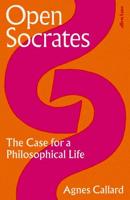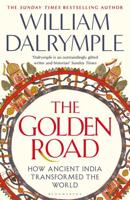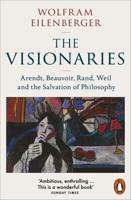Publisher's Synopsis
THE SECRET CODES OF THE MIND: The 20th Century and Contemporary Philosophy; Political Philosophy and Philosophy of Science, Book VI (Revised Academic Edition)
The sixth and final volume of The Secret Codes of the Mind offers a structured and in-depth exploration of key philosophical movements that defined the 20th century and continue to shape contemporary thought. Divided into two comprehensive modules, the volume examines schools of philosophy that revolutionized ethics, politics, science, psychology, and the nature of philosophical inquiry itself.
The first module begins with pragmatism and utilitarianism, two influential traditions that emphasized the role of practice, consequences, and utility in human decision-making. Thinkers such as William James, John Dewey, and Charles Sanders Peirce are discussed alongside Jeremy Bentham and John Stuart Mill, tracing how philosophy was reoriented toward education, democracy, and social reform.
The next chapter turns to psychoanalysis, focusing on its philosophical implications. Sigmund Freud's theory of the unconscious and Carl Jung's archetypal psychology are analyzed not only as psychological systems but as conceptual frameworks that shaped existentialism, ethics, aesthetics, and the philosophy of culture.
The section on analytic philosophy examines the transformation of philosophical method in the 20th century. Beginning with Bertrand Russell and Ludwig Wittgenstein, and continuing through the Vienna Circle and logical positivism, this tradition brought precision, formal logic, and linguistic analysis to the forefront of Anglo-American philosophy.
Phenomenology is introduced through Edmund Husserl, whose method of investigating the structures of consciousness and intentionality marked a new foundation for continental thought. This is followed by Martin Heidegger's existential ontology, which reframes phenomenology in terms of human existence (Dasein), temporality, and being-in-the-world.
These developments give rise to existentialism, represented by Jean-Paul Sartre and Maurice Merleau-Ponty, who expand phenomenological analysis into lived experience, freedom, embodiment, and ethical responsibility. Together, phenomenology and existentialism reshaped 20th-century continental philosophy and influenced literature, psychology, theology, and political thought.
The second module focuses on political philosophy, examining the enduring search for the ideal state, justice, liberty, and collective responsibility. Competing visions-liberalism, socialism, communitarianism, and postcolonial critique-are presented through key texts and debates, emphasizing the relevance of political theory in the face of global crises, inequality, and ideological polarization.
The volume concludes with an exploration of the philosophy of science, addressing both its classical foundations and emerging challenges. Topics include the logic of scientific explanation, realism versus relativism, the significance of paradigm shifts (inspired by Thomas Kuhn), and the ethical dimensions of modern science.
Contemporary issues such as artificial intelligence, bioethics, ecological thought, and digital culture are introduced as urgent areas where philosophy and science intersect.
Comprehensive, precise, and relevant, Book VI provides students, scholars, and independent readers with a panoramic view of the modern philosophical world. It brings the series to a close by connecting the legacy of the past with the open questions of the future.










